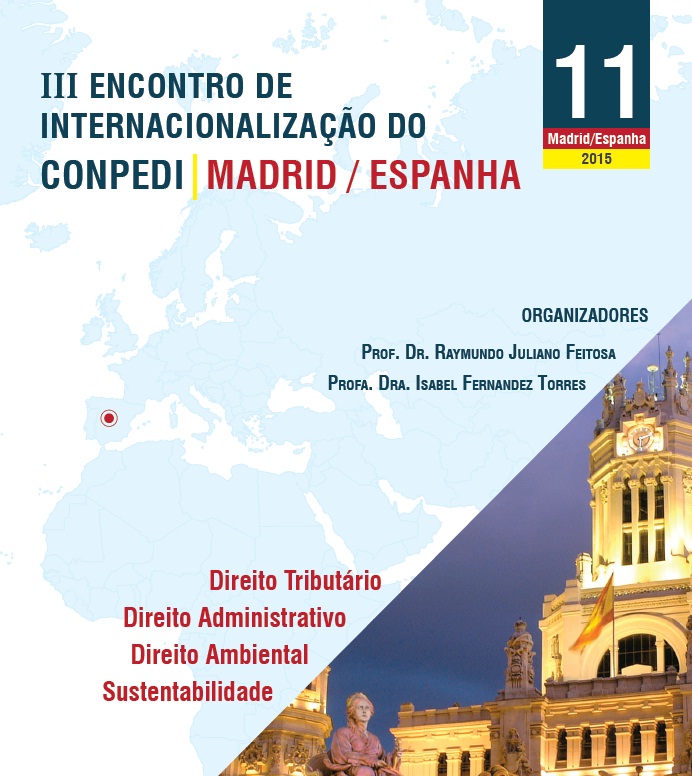Desenvolvimento Sustentável e Crise Ambiental: Exercício da Cidadania Participativa Diante da Questão Agrária na Perspectiva do Direito
Conteúdo do artigo principal
Resumo
Downloads
Detalhes do artigo
Autores que publicam nesta revista concordam com os seguintes termos:
O(s) autor(es) autoriza(m) a publicação do texto na da revista;
O(s) autor(es) garantem que a contribuição é original e inédita e que não está em processo de avaliação em outra(s) revista(s);
A revista não se responsabiliza pelas opiniões, idéias e conceitos emitidos nos textos, por serem de inteira responsabilidade de seu(s) autor(es);
É reservado aos editores o direito de proceder a ajustes textuais e de adequação às normas da publicação.
Autores mantém os direitos autorais e concedem à revista o direito de primeira publicação, com o trabalho simultaneamente licenciado sob a Licença Creative Commons Attribution que permite o compartilhamento do trabalho com reconhecimento da autoria e publicação inicial nesta revista.
Autores têm autorização para assumir contratos adicionais separadamente, para distribuição não-exclusiva da versão do trabalho publicada nesta revista (ex.: publicar em repositório institucional ou como capítulo de livro), com reconhecimento de autoria e publicação inicial nesta revista.
Autores têm permissão e são estimulados a publicar e distribuir seu trabalho online (ex.: em repositórios institucionais ou na sua página pessoal) a qualquer ponto antes ou durante o processo editorial, já que isso pode gerar alterações produtivas, bem como aumentar o impacto e a citação do trabalho publicado (Veja O Efeito do Acesso Livre) emhttp://opcit.eprints.org/oacitation-biblio.html
Referências
______. O futuro da Democracia: uma defesa das regras do jogo. Rio de Janeiro: Paz e Terra, 1997.
COLINA GAREA, Rafael, La Función Social de La Propiedad privada, Barcelona: José María Bosch editor, 1997.
GARCÍA ENTERRÍA, Eduardo, En prólogo a la obra de Bernard Schwartz, Los diez mejores jueces de la historia americana, Madrid: Civitas, 1980.
GOMEZ MONTORO, A., La titularidad de derechos fundamentales por personas jurídicas: un intento de fundamentación. Madrid: Revista Española de Derecho Constitucional, nº. 62, 2001, p. 50.
LEFF, Enrique, Saber Ambiental: Sustentabilidade, racionalidade, complexidade, poder. Petrópolis, RJ: Vozes, 2010.
LÓPEZ Y LÓPEZ, Ángel M., La Disciplina Constitucional de la Propiedad Privada, Madrid, Tecnos, 1988.
MUNIZ, I. G., Protagonistas de um sonho: desafio da assessoria jurídica no campo, João Pessoa: Emprell, 2000, p. 53.
PERLINGIERI, Petro, Perfis do Direito Civil – Introdução ao Direito constitucional, Rio de Janeiro, Renovar, 1997.
RAWLS, John, Justiça como Equidade: uma reformulação. São Paulo: Martins Fonte,2003.
REYDON, Batistan Philip. A regulação institucional da propriedade da terra no Brasil: uma necessidade urgente. Em: Dimensões do Agronegócio Brasileiro: Políticas, Instituições e Perspectivas. NEAD estudos nº 15, Brasília: MDA, 2007.
REY MARTÍNEZ, Fernando, Fernando, La propiedad Privada en la Constitución Española, Madrid: Boletín oficial, Centro de Estudios Constitucionales, 1994.
RUIZ PEREZ, Salvador Joaquín, Juez y sociedad, Málaga: Universidad de Málaga,1981.
SANTA ROSA, Virginio, O que foi o tenentismo? - Rio de Janeiro, Civilização Brasileira,1963.
SILVA-SÁNCHEZ, Solange S. Cidadania Ambiental: novos direitos no Brasil. São Paulo: Annablume, 2010.





